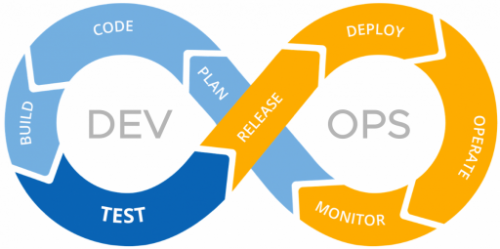

2022/08/16 Microsoft Cloud Solutions 403 visit(s) 4 min to read
ctelecoms

Nowadays, companies around the world are facing more challenges than ever when it comes to their own data, and one of those challenges is data loss and disaster recovery.
A company losing their own data or having a problem retrieving it can put the entire enterprise at risk whether with clients or employees alike, costing them tons of money, effort, and time!
DevOps allows enterprises to adopt a backup and disaster recovery strategy with just a few clicks and a little awareness.
That’s why we are addressing the tips that would help you achieve a successful DevOps backup.
Backups must overcome any situation like system failures, security attacks, and disasters. And if you face any of these, the most important thing is to be able to recover quickly and accurately to maintain the workflow.
However, with DevOps, there are a few points to take into consideration.
Since DevOps can be considered a live operational environment, and this can manifest as a challenge.
These environments are rich with highly dynamic microservices running across a distributed system of tightly connected compute, data, applications, and services.
As applications and services move to a multi-region and multi-tenancy architecture, it's critical to consider two types of backups:
This first type deals with data storage devices that retain data when power is off, and that includes databases, static resources, and messages.
As for this one, it backs up operating systems files including cluster state, node state, and microservice state, in addition to data pipeline state.
Another great challenge is to successfully integrate the backup process into the DevOps CI/CD pipeline.
The latter is a combination of two techniques:
At this stage, you are doing backups for dependent components of the application, such as the application's current production version, configurations, and databases.
Any developer working with databases and application versions understands the struggle of losing any part of the work, and that’s why this is very important to be handled correctly.
Adopting the CI/CD pipeline model instead if waterfall software development should make it easier to integrate backup steps, thereby reducing external dependency that organizations will need to coordinate and execute with every future release.
The best way to build a reliable DevOps backup system, it is by integrating the backup process directly into the CI/CD pipeline.
If you are lucky to have a well-defined DevOps process, then backups should be an automated step within the aforementioned CI/CD pipeline.
However, if you are an engineer, you might need some assistance from your system and database administrators, depending on the data that back up and who is responsible for handling them.
The cloud is a popular platform not only for DevOps, but for everything an organization needs to save, host, or consume since it’s capable of setting up and scaling systems to a whole new global level in a matter of minutes.
Now the good thing is that all major cloud platforms – such as the one provided by Microsoft – offer backup and restore capabilities for the products and services available on their platforms through automatic or on-demand backup or both.
We are a certified Microsoft partner, providing services to businesses of all sizes in Saudi Arabia.
Our team of qualified engineers will take the lead and help you through your DevOps backup integration process and more. Contact us at: https://www.ctelecoms.com.sa/en/Form15/Contact-Us